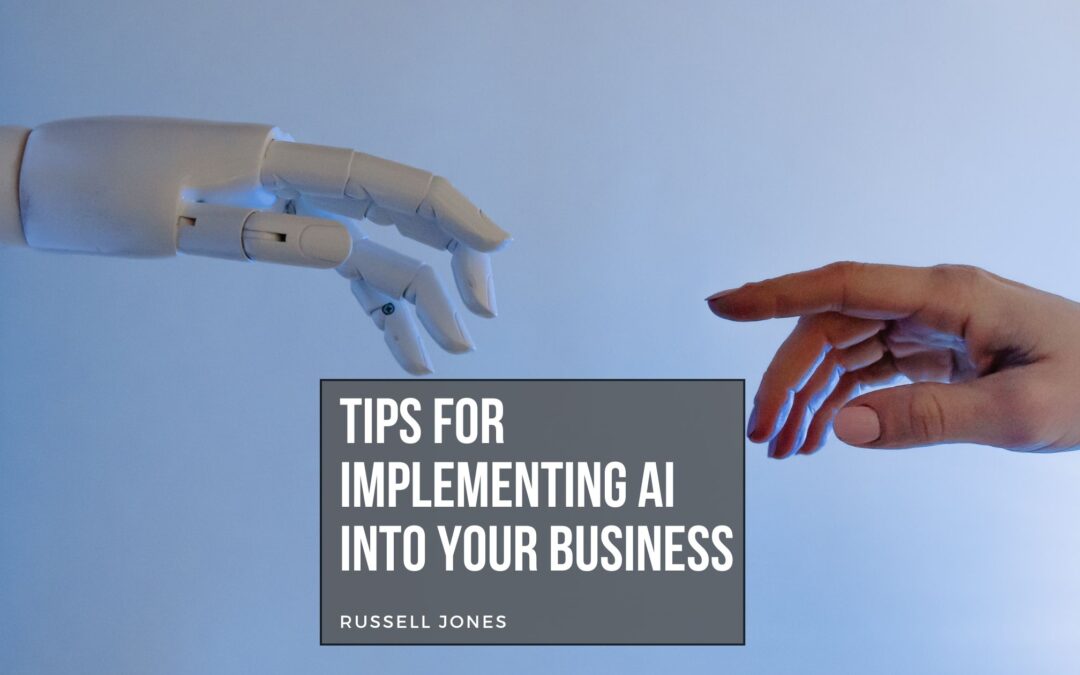As companies across industries seek to leverage AI’s potential, the journey from conception to implementation poses significant challenges. By dissecting key considerations and strategies, businesses can navigate the complexities of AI adoption, ensuring they are well-positioned to capitalize on its benefits.
Integrating Artificial Intelligence into business operations marks a pivotal shift in how companies operate and compete. AI technologies, from machine learning algorithms to natural language processing, offer the ability to analyze vast amounts of data, automate routine tasks, and enhance decision-making processes. The backdrop of this technological evolution is a world increasingly driven by data, where the ability to extract insights and act upon them quickly can set a company apart. However, the path to AI integration is fraught with challenges, including the need for substantial investment in technology and talent, the imperative to ensure data quality and security, and the necessity of aligning AI initiatives with overall business strategy. Furthermore, ethical considerations and the impact on the workforce must be thoughtfully managed. Despite these challenges, the potential benefits of AI, such as increased efficiency, improved customer experiences, and new revenue streams, make it an endeavor worth pursuing for businesses aiming to thrive in the digital age.
Understanding Your AI Readiness
Before diving into AI, it’s crucial for businesses to assess their readiness, focusing on data infrastructure, talent, and culture. Firstly, a robust data infrastructure is foundational. AI systems thrive on high-quality, relevant data, making it imperative for companies to have access to and the ability to process and store large datasets efficiently. This includes not only the technical hardware and software but also data governance policies to ensure data integrity and privacy. Secondly, having the right talent is essential. This encompasses not only hiring AI specialists and data scientists but also upskilling existing employees to work alongside AI technologies. The goal is to foster a workforce that is not only technically proficient but also adaptable to the changes AI brings. Lastly, cultivating an AI-friendly culture is vital. This entails establishing a setting that values experimentation, views failure as a teaching tool, and has a common goal of using AI to augment rather than replace human talents.
Selecting the Right AI Solutions
Selecting the right AI solutions requires a strategic approach that aligns with business objectives and operational needs. It begins with identifying specific problems or opportunities where AI can provide significant value, such as customer service enhancement, operational efficiency improvements, or product innovation. Once areas for AI application are pinpointed, businesses must evaluate various AI technologies and platforms, including scalability, integration, and levels of customization. It’s also important to conduct a cost-benefit analysis to ensure that the investment in AI technology will deliver a tangible return. Additionally, companies should seek AI solutions that offer user-friendly interfaces and require minimal technical expertise for day-to-day operations, enabling wider adoption across the organization. Collaboration with AI vendors or partners who can provide expertise and support is also critical, as it can accelerate the implementation process and mitigate risks associated with adopting new technologies. Ultimately, selecting the right AI solutions is about finding the best fit for the company’s current and future needs, enabling it to leverage AI’s power to drive growth and innovation.
Implementing AI with Ethical Considerations
Implementing AI in business is not just a technical challenge but also an ethical imperative. As AI systems increasingly influence decision-making and interact with customers, ensuring they operate within ethical guidelines is paramount. This involves addressing biases in AI algorithms, which can perpetuate or even exacerbate existing inequalities if left unchecked. Companies must invest in bias detection and mitigation strategies, regularly auditing AI systems for fairness and transparency. Additionally, respecting user privacy and data security is crucial, especially as AI systems process vast amounts of personal information. This means adhering to data protection regulations, such as GDPR in Europe, and implementing robust cybersecurity measures. Moreover, businesses should engage in transparent communication about how AI is used, the decisions it influences, and the measures in place to protect stakeholders. Establishing an AI ethics board or committee can help oversee AI initiatives, ensuring they align with ethical standards and societal values. By prioritizing ethical considerations in AI implementation, businesses not only safeguard against reputational risks but also build trust with customers, employees, and the wider community, fostering a responsible and sustainable approach to AI adoption.

